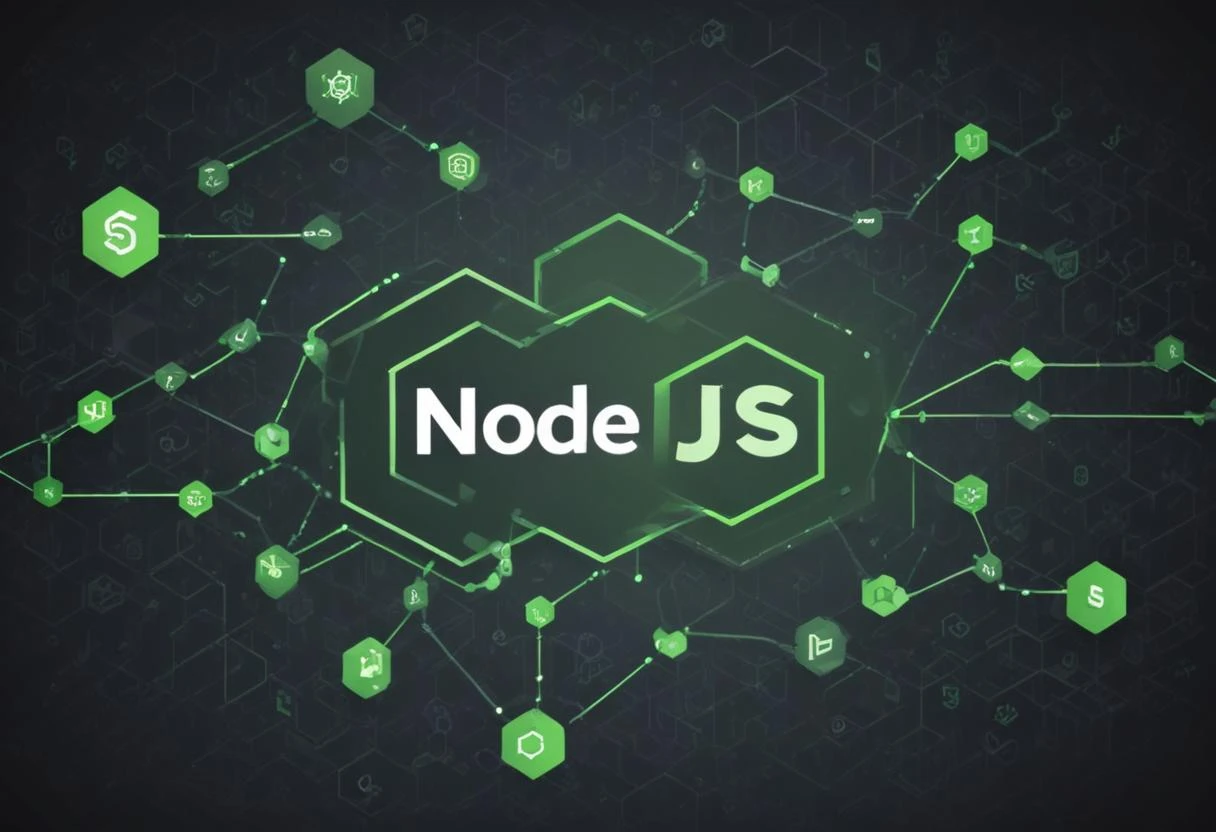Top 10 best node.js framework for App development in 2024
Node.js is supported by a vast array of frameworks that simplify the development process and enhance the capabilities of web applications
Created by: Adeshola Bello /
Vetted by:
Otse Amorighoye

Node.js Frameworks
Node.js is supported by a vast array of frameworks that simplify the development process and enhance the capabilities of web applications.
As of 2024, here are the top 10 Node.js frameworks that stand out for app development:
1. Express.js
Overview
Express.js remains the de facto standard for Node.js web application development. Known for its minimalistic and flexible approach, it provides a robust set of features for building single-page, multi-page, and hybrid web applications.
Key Features
Simplicity and speed in handling HTTP requests
Minimalistic and flexible
Extensive middleware support
Use Cases
Express.js is particularly favored for its simplicity and speed, making it ideal for building a wide range of web applications, from simple websites to complex APIs.
2. NestJS
Overview
NestJS is a framework built with TypeScript and combines elements of Object-Oriented Programming (OOP), Functional Programming (FP), and Functional Reactive Programming (FRP).
Key Features
TypeScript support
Inspired by Angular
Modular architecture
Use Cases
NestJS is well-suited for building efficient, reliable, and scalable server-side applications, especially for developers familiar with Angular. If you are comparing Node.js with other development environments, you might be interested in reading about Node.js vs Java: Which is Better for Your Development Needs.
3. Koa.js
Overview
Developed by the creators of Express.js, Koa.js aims to be a smaller, more expressive, and more robust foundation for web applications and APIs.
Key Features
Leverages async functions
Improved error-handling capabilities
Elegant suite of methods
Use Cases
Koa.js is ideal for developers looking to build robust and expressive web applications without bundled middleware. Learn more about the differences between Django and Node.js for Web Development in 2024.
4. Sails.js
Overview
Sails.js is especially well-suited for building data-driven APIs and service-oriented architectures. It mimics the familiar MVC (Model-View-Controller) pattern.
Key Features
Data-driven APIs
Scalable service-oriented architecture
MVC pattern
Use Cases
Sails.js is perfect for modern apps requiring data-driven APIs with a scalable architecture.
5. Meteor.js
Overview
Meteor.js is a full-stack Node.js framework that makes it simple to build modern, high-quality web apps quickly.
Key Features
Full-stack framework
Integration with MongoDB
Real-time data propagation
Use Cases
Meteor.js is excellent for developers who need to build real-time applications quickly with minimal synchronization code.
6. LoopBack
Overview
LoopBack is a highly-extensible, open-source Node.js framework based on Express that enables you to create dynamic end-to-end REST APIs with little or no coding.
Key Features
Dynamic REST APIs
Connects to multiple data sources
Extensible with plug-and-play components
Use Cases
LoopBack is ideal for creating dynamic REST APIs with minimal coding effort. To understand more about the capabilities of Node.js, check out What is Node.js Development.
7. Feathers
Overview
Feathers is a microservice-oriented framework that works seamlessly with Express for building real-time applications and REST APIs.
Key Features
Microservice-oriented
Easy integration with databases
Support for frontend technologies
Use Cases
Feathers is versatile and allows you to structure your app as you see fit, making it great for real-time applications and REST APIs. If you are exploring different Node.js solutions, How Node.js Solutions can Drive Business Growth might be of interest.
8. Hapi.js
Overview
Hapi.js is a powerful and robust server framework for building applications and services, allowing developers to focus on writing reusable application logic.
Key Features
Fine-grained configuration
Built-in support for input validation, caching, and authentication
Robust plugin system
Use Cases
Hapi.js is known for its fine-grained configuration, making it suitable for developers who need extensive control over their application's infrastructure.
9. AdonisJs
Overview
AdonisJs is a fully-featured web framework for Node.js that includes everything you need to create a complete web app or an API from scratch.
Key Features
Stable ecosystem
Comprehensive feature set
MVC architecture
Use Cases
AdonisJs is perfect for developers looking for a complete solution to write server-side web applications with a stable and comprehensive ecosystem.
10. Total.js
Overview
Total.js is a full-stack Node.js framework which supports the MVC architecture and provides components for building efficient and maintainable applications.
Key Features
Full-stack framework
Own view engine and web server
Comprehensive module support
Use Cases
Total.js is a great choice for developers looking for an all-in-one solution with a full-stack framework. For a detailed comparison of Node.js frameworks, check out Top 10 Popular Node.js Frameworks for App Development: A 2024 Guide.
FAQs
1. What is the most popular Node.js framework?
Express.js is currently the most popular Node.js framework due to its minimalistic and flexible approach.
2. Which Node.js framework is best for real-time applications?
Meteor.js and Feathers are both excellent choices for building real-time applications.
3. What is the main advantage of using NestJS?
NestJS offers a modular architecture and TypeScript support, making it ideal for building scalable and maintainable server-side applications.
4. Can I use these frameworks with any database?
Yes, most of these frameworks support integration with various databases, including MongoDB, MySQL, PostgreSQL, and more.
5. Is Koa.js better than Express.js?
Koa.js offers a more expressive and robust foundation by leveraging async functions, but the choice between Koa.js and Express.js depends on your specific project requirements and preferences.
Each of these frameworks brings unique strengths to the table, catering to different types of applications and developer preferences. The choice of framework often depends on specific project requirements, team expertise, and the particular features that are necessary for the application’s success.
For interview tips related to Node.js, see Top Interview Questions for Node.js Developers: A Comprehensive Guide.